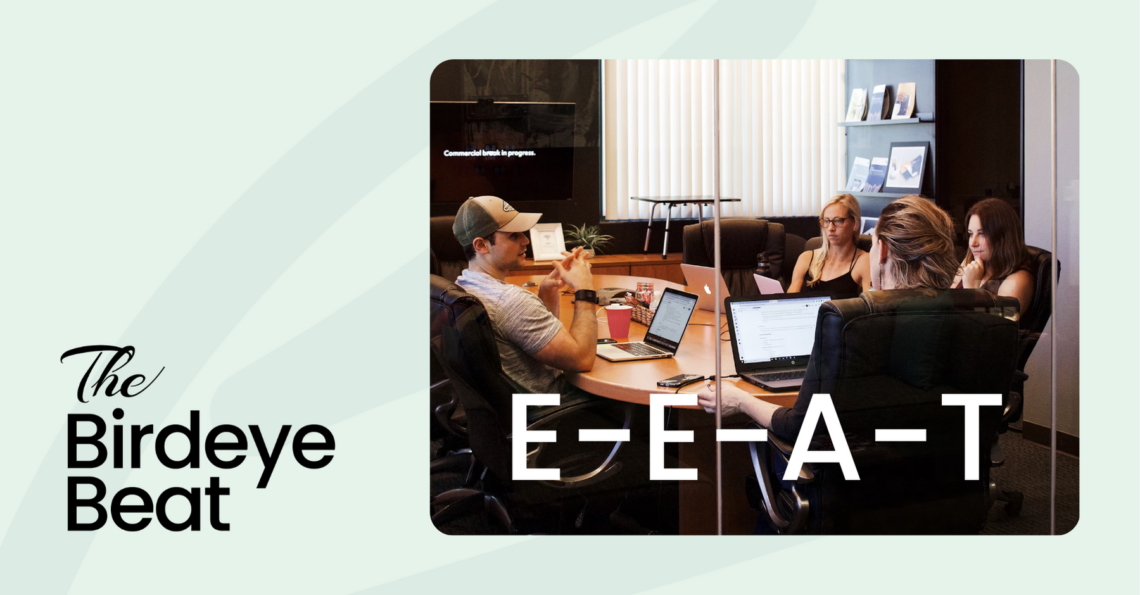Google’s E-E-A-T guidelines are the quality signals Google uses to judge whether content shows real Experience, strong Expertise, clear Authoritativeness, and reliable Trustworthiness.
Summary
For marketing agencies, E-E-A-T matters in two ways. First, it helps your website earn trust and visibility by demonstrating expertise and backing it up with real evidence. Second, it directly affects client results: content that lacks credible sources, real-world experience, and clear authority often struggles to rank, convert, or earn confidence. The agencies that get this right do not just publish more content; they publish content that is perceived as trustworthy by both people and search systems.
This blog covers what E-E-A-T means and how Google evaluates it across websites and content types. It also outlines practical, agency-friendly steps to improve E-E-A-T for your site and your clients’ sites.
Table of contents
What is E-E-A-T?
E-E-A-T is an acronym created by Google that stands for:
- Experience
- Expertise
- Authoritativeness
- Trustworthiness
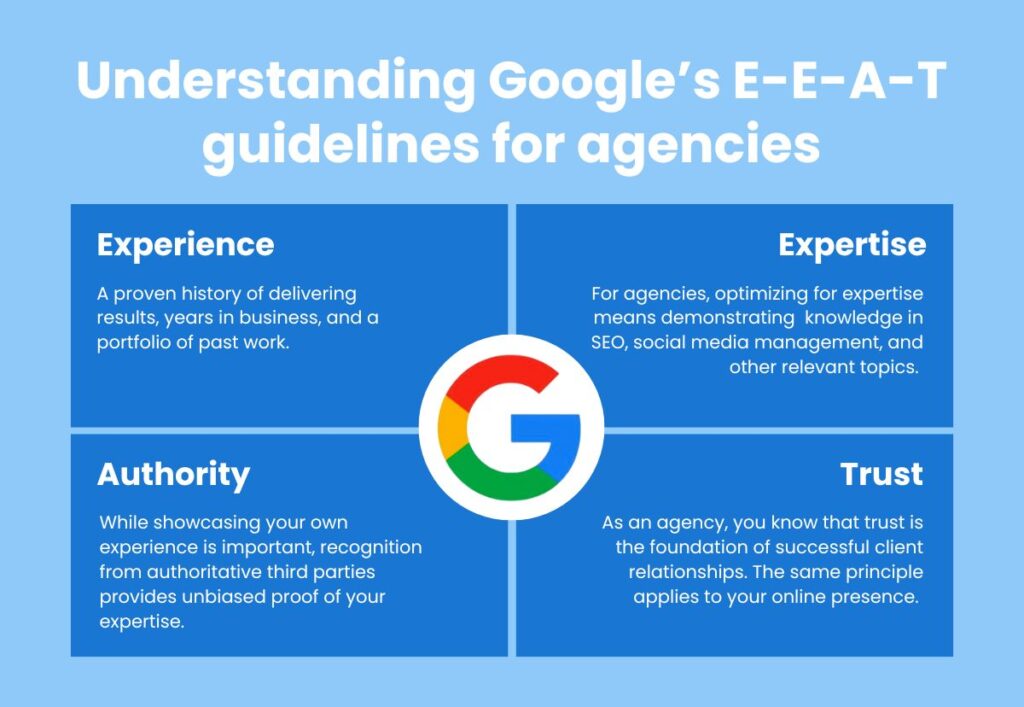
In a nutshell, your E-E-A-T score signals your ability to provide top-notch content and experiences. Optimizing these ranking factors impacts how Google perceives your agency and improves your digital presence.
Note: Google updates its search ranking systems often. In December 2022, Google added an extra "E," for experience, to their search quality rater guidelines. Before this update, the acronym was E-A-T.
Why E-E-A-T matters for marketing agencies
As we already mentioned, optimizing E-E-A-T is essential for marketing agencies on two fronts. First, you need to make your website trustworthy and experienced. This proves to Google you can help clients. Second, you can better help your clients succeed online by understanding Google’s E-E-A-T criteria.
Next, let’s break down actionable tips for optimizing each component of this crucial acronym.
Birdeye – all-in-one platform
Automate Reviews, Ratings, Listings & Reputation Management with Birdeye.
Experience
The first ‘E’ in E-E-A-T stands for experience. This refers to a proven history of delivering results, years in business, and a portfolio of past work. Showcasing extensive experience is crucial for agencies to build trust and credibility with potential clients.
Here are key ways you can optimize your web pages to highlight experience:
- Prominently display your founding year and total years in business on your About Us page. Longevity and history set you apart.
- Create a portfolio page with case studies highlighting your experience helping clients from various industries succeed.
- Get featured client logos on your website to flaunt the caliber of brands you have experience working with.
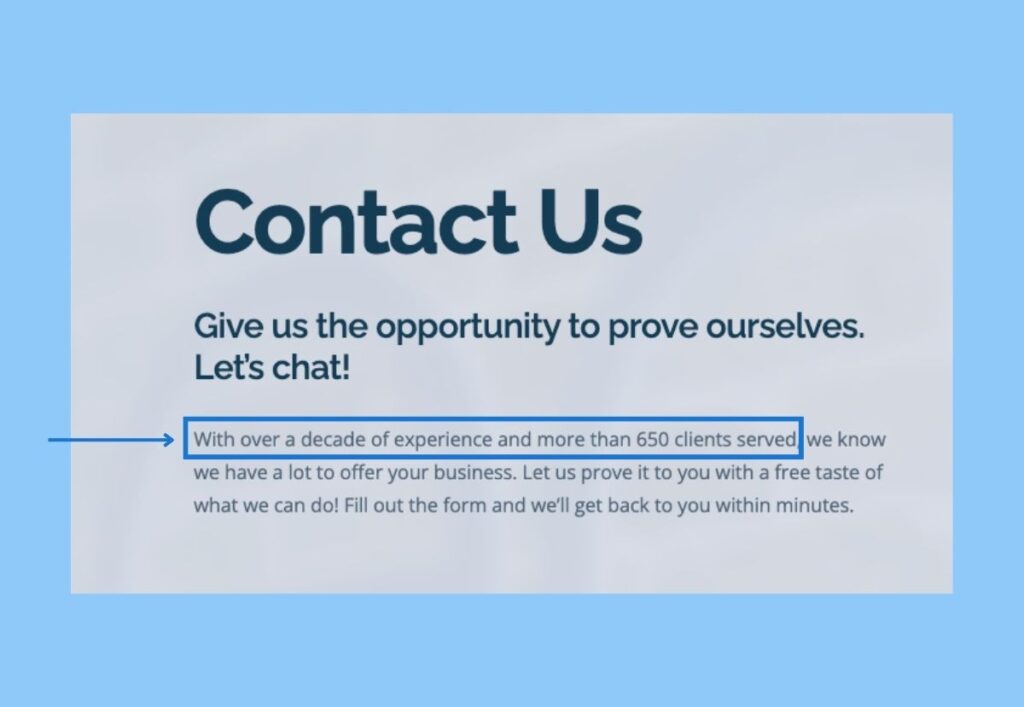
Expertise
The second ‘E’ in E-E-A-T represents expertise. For agencies, optimizing for expertise means demonstrating deep knowledge in SEO, paid advertising, social media management, and other relevant topics.
Here are some effective ways to optimize your website to highlight expertise:
- Create service pages that explore your capabilities around SEO, PPC, web design, etc. Flaunt your technical know-how!
- Create content that dives deep into marketing topics to showcase your advanced knowledge.
- Ensure team member bios emphasize skills, responsibilities, achievements, and thought leadership in relevant areas.
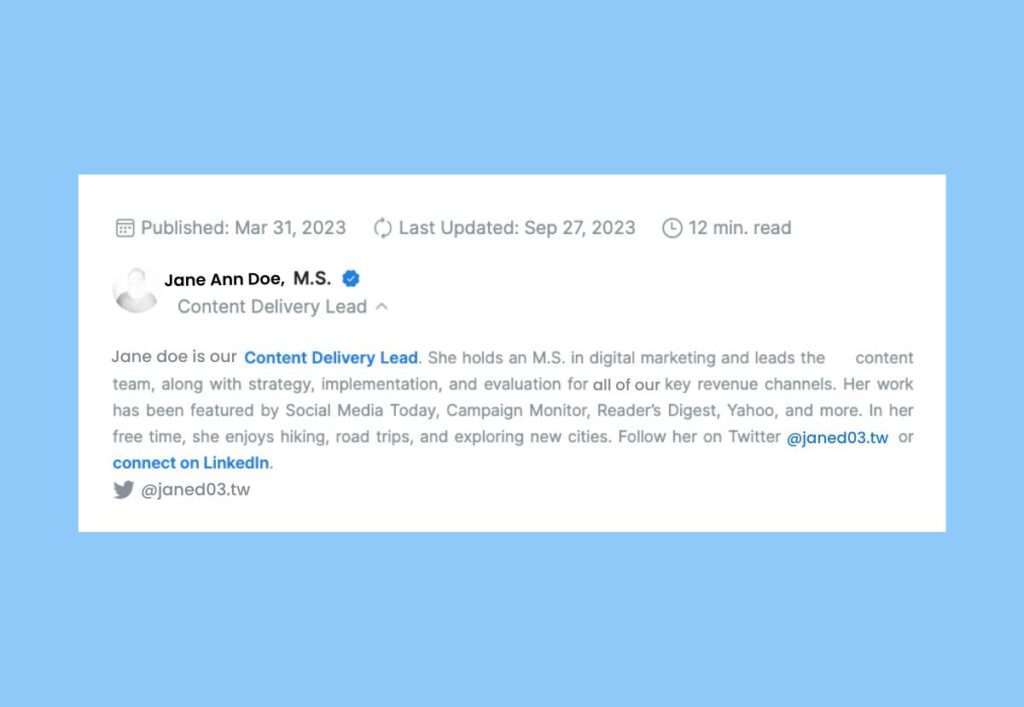
Authoritativeness
The ‘A’ in E-E-A-T stands for authoritativeness. While showcasing your own experience is important, recognition from authoritative third parties provides unbiased proof of your expertise.
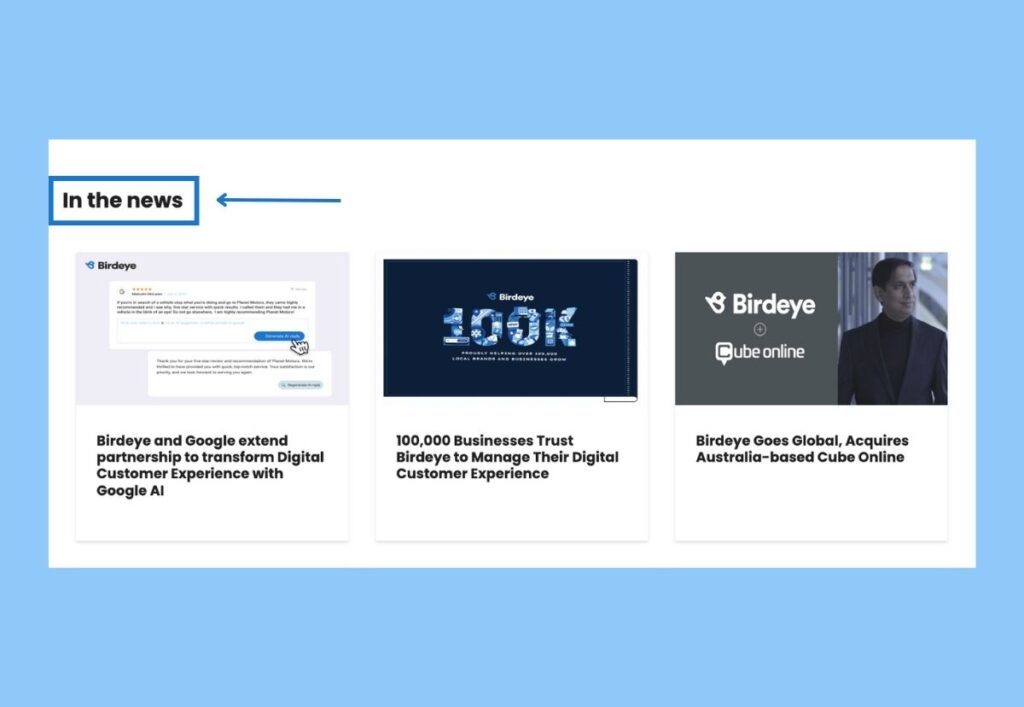
Here are a few ways for you to optimize your authoritativeness:
- Get backlinks to your website from trusted industry publications, blogs, directories, and resources.
- Compile and showcase press mentions, features, and coverage by reputable brands and media outlets.
- Flaunt any awards or certifications from reputable organizations related to your services.
Trustworthiness
The ‘T’ in E-E-A-T represents trustworthiness. As an agency, you know that trust is the foundation of successful client relationships. The same principle applies to your online presence. In the same way you work hard to gain client trust, Google works hard to display trustworthy websites to its searchers.
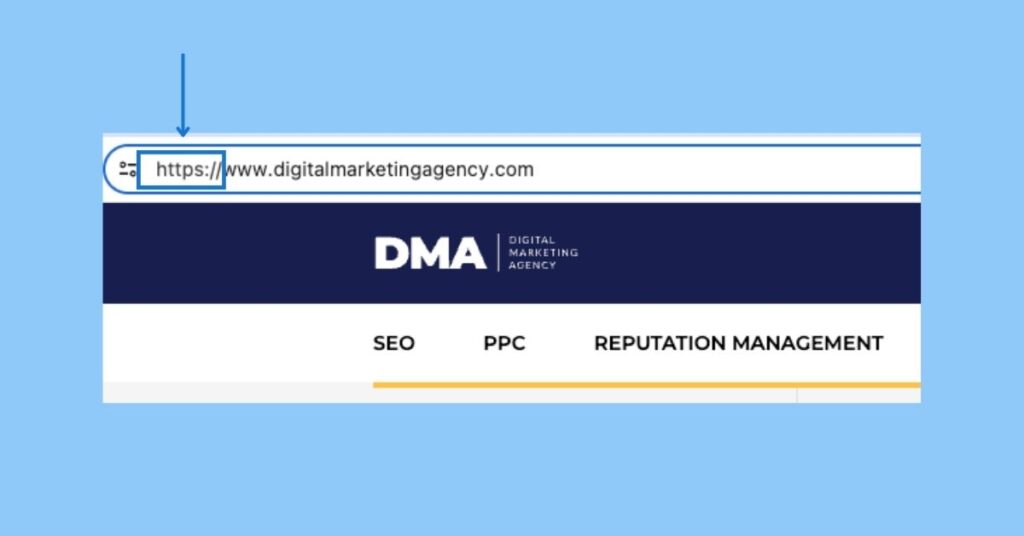
Here are a handful of ways you can build trustworthiness:
- Ensure your website is secure by using HTTPS in the URL.
- Prominently display a privacy policy and terms of service of how their data will be handled.
- Eliminate any broken links, functionality issues, errors, or outdated content through regular audits.
- Provide clear avenues for feedback and questions, and transparency into who is responding and how.
E-E-A-T tips and best practices
Optimizing websites and content for E-E-A-T requires a holistic approach. Beyond the core components we’ve covered, several best practices that can enhance your E-E-A-T efforts. Keep these supplemental strategies in mind to round out your approach.
Collect and display reviews and testimonials
Positive reviews and testimonials are powerful indicators of trustworthiness and expertise. Encouraging your clients to leave feedback and displaying these reviews on your site provides real-world validation of your services. This social proof can significantly influence new visitors’ perceptions, boosting confidence in your agency and its offerings.
Stay updated on Google algorithm changes
Google’s algorithm is constantly evolving. Because of this, the way E-E-A-T is assessed may change over time. Regularly review resources like Moz to stay updated on the latest algorithm changes and best practices.
Regularly update your content
Keeping your content fresh and up-to-date is crucial for maintaining a high level of expertise and authoritativeness. You want Google (and your audience) to view you as a thought leader! Regular updates signal to Google that your site is a current and reliable source of information. This involves updating blog posts and web pages to ensure up-to-date and accurate information.
Monitor your online reputation
An active online presence is a huge green flag for Google and your target audience.
Regularly monitoring social media, forums, and review sites for mentions of your agency allows you to address negative feedback constructively and highlight positive experiences.
Birdeye Search AI helps agencies track how clients show up in generative AI results, where people ask complex questions instead of typing keywords. It measures AI visibility across platforms such as ChatGPT, Gemini, and Perplexity relative to competitors and flags issues that undermine trust and discoverability. It also recommends fixes that strengthen both AI performance and traditional local SEO.

And above all else, remember: Consistency is critical for long-term E-E-A-T success. Establishing processes to identify opportunities and execute improvements will help your agency succeed.
Google E-E-A-T FAQs
E-E-A-T stands for experience, expertise, authoritativeness, and trustworthiness. It’s a framework used by Google to assess the quality of content on websites. Websites with solid E-E-A-T are more likely to provide high-quality content that meets or exceeds users’ expectations. Because of this, Google rewards them with better visibility and potentially more traffic.
In December 2022, Google added a new “E” to its E-A-T acronym, making it E-E-A-T. The new E stands for experience. Google evaluates and ranks experience based on factors like years in business, case studies, testimonials, and more.
E-E-A-T is a part of Google’s algorithm to evaluate the quality of content on the web. Websites and content demonstrating high expertise, authoritativeness, trustworthiness, and experience are more valuable to searchers. Therefore, Google is more likely to rank them highly in search engine results.
Optimize E-E-A-T and maximize client wins with Birdeye
Through a strategic approach to experience, expertise, authoritativeness, and trustworthiness, your agency can stand out in a crowded digital landscape and help clients do the same.
The good news? Mastering E-E-A-T doesn’t have to be a solitary journey — in fact, it shouldn’t be one. Birdeye is here to partner with you every step of the way.
Birdeye Search AI is built for the new era of search, where buyers use generative AI to compare options and make decisions faster. It tracks how your brand appears in AI answers and against competitors, then helps fix issues that reduce visibility. That way, your E-E-A-T work shows up where people search now, not just where they used to.
Birdeye’s suite of tools is tailor-made to help you manage social media, gather and leverage reviews, and optimize online presence for both your agency and your clients. From enhancing your social media management efforts to showcasing your expertise through positive client testimonials, Birdeye simplifies the process of building a trustworthy and authoritative online presence.
Watch a demo today to give it a try.

Originally published
